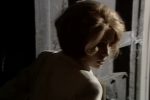The Tony Hancock Collection – Review

By James Robinson
Looking back at the pop culture of the period, the 1950s can seem quite far removed from today. Comedy, in particular, was still very much ensconced in the traditions of the music hall. Comedians of that era tend to be slick and fast-talking, their acts leaning heavily towards general light entertainment: think Max Bygraves or Arthur Askey. It has its moments, perhaps, but it’s undeniably dated. Even the Goon Show, the influence of which can be traced right through to Monty Python and Vic and Bob, sounds very much a product of its time.
By contrast, Hancock’s Half Hour (later just ‘Hancock’) is strikingly modern. Anthony Aloysius St John Hancock isn’t a slick song-and-dance man. He’s a down-on-his-luck good-for-nothing living in a shabby house (23 Railway Cuttings) in the wrong-end of East Cheam. Constantly at odds with the world, his character is arrogant, pompous, tactless and forever putting his foot in his mouth. In this way he predates Larry David and Curb Your Enthusiasm by 50 years, and his misadventures are as amusing and relatable today as they were more than half-a-century ago.
 “Very wordy”
“Very wordy”
His was the original show about nothing. The problems Hancock faces – the TV won’t work, the house needs redecorating, money is in short supply – are the same everyday irritations that continue to resonate down the decades. Jobsworths, be they hotel receptionists, customs officers or other associated minor officials, are as annoying now as they were in 1956, so when the Lad Himself is unlucky enough to encounter such individuals – as he so frequently does – the resultant comedic fall-out still works.
There are, of course, many idiosyncrasies that do reflect its age. This is a very wordy series, Hancock frequently soliloquising – even breaking the fourth wall – which reflects its origins on radio. Even so, Hancock was a gifted physical comedian – witness him attempt to mime the plot of an adventure story after being shushed in a library, or re-enact his favourite TV show when the set breaks down.
The scenes tend to be long too, technical restrictions not allowing the action to take place in too many locations per episode, although in their weirder moments the plots do see Hancock jumping out of an aeroplane, being locked in an Alpine prison or even lost in the Antarctic.
“Master of the deadpan delivery”
The supporting cast, who recur in dozens of guises, represent some of the best comic acting talent of the mid-20th century, including John Le Mesurier, Kenneth Williams and June Whitfield. Unfortunately, Hancock was notorious for dropping actors who stole too much of his limelight, and only Sid James, as his perpetually crooked sidekick, made it through six of the seven series. Sid is so much a part of the Hancock universe, in fact, that it’s easy to forget that he doesn’t appear in some of the best known episodes, particularly ‘The Blood Donor’, ‘The Radio Ham’ and’ The Bowmans’.
A huge amount of the show’s success must, of course, be attributed to its writers, the legendary Ray Galton and Alan Simpson. The series is packed with memorable lines, some of them still familiar today: ‘A pint? That’s very nearly an armful!’ – ‘There’s no future for anybody in this country, unless they go out to work’ – ‘Does Magna Carta mean nothing to you? Did she die in vain?’ Hancock was a master at the deadpan delivery of such nonsense observations. It’s no wonder Paul Merton is a fan.
Alas, like many BBC programmes made before the advent of home media, lots of Hancock’s Half Hour, including the entire first series, has been lost forever, a victim of the BBC’s former policy of wiping old material. Still, a magnificent 37 episodes survive and are available in a prettily packaged box-set. Although not over-stuffed with extras, the ones included are of a high quality, including a handful of commentaries, and extended interview with Galton and Simpson, script PDFs and, most notably, the famous – and famously uncomfortable – Face-to-Face interview in which John Freeman didn’t hold back in exposing his subject’s many and varied neuroses.
‘The Tony Hancock Collection’ from the BBC is out now from Amazon and major supermarkets









